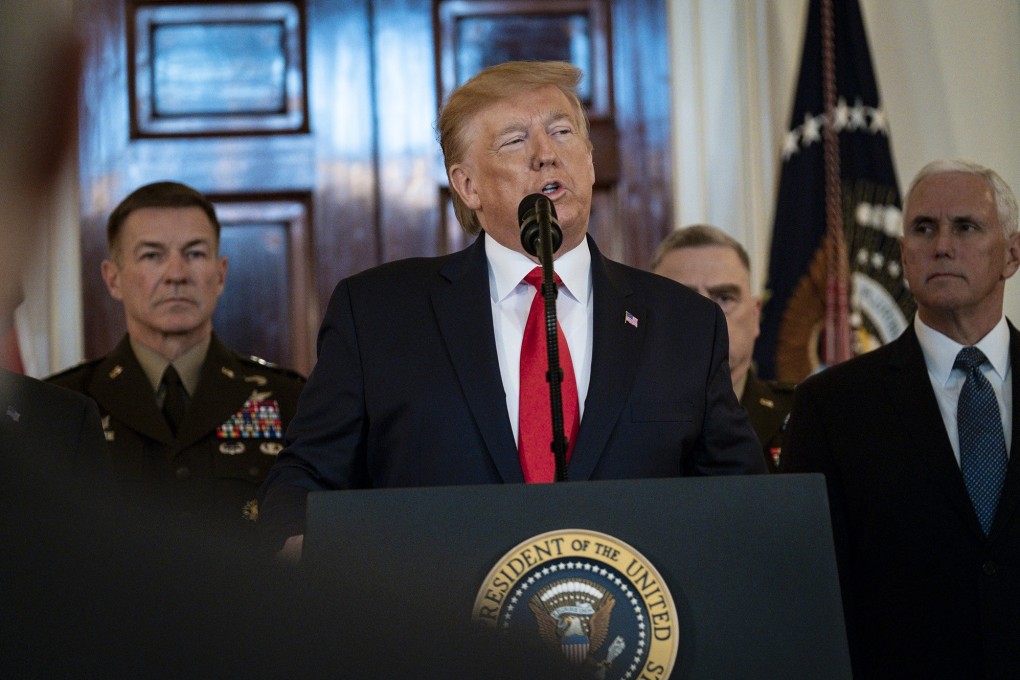US-Iran tensions not likely to stall equities markets as recession fears ease in 2020, strategists say
- Little to no chance of a recession in 2020; modest returns are likely for equity markets
- Oil prices would need to spike for a long period to cut into GDP forecasts, according to BNP Paribas Wealth Management

Investors should avoid the noise from a flare-up in tensions in the Middle East between the United States and Iran, as geopolitical risks, ranging from the US-China trade war to the US presidential election, are not likely to derail the equities markets, investment strategists, portfolio managers and economists said.
There is little to no chance of a recession in 2020 and equity markets are likely to continue their positive momentum this year, particularly in the US, strategists said. Returns will be more modest than 2019, but high-single digit returns are likely, according to Prashant Bhayani, chief investment officer for Asia at BNP Paribas Wealth Management.
“In terms of economics, oil is a key transmission mechanism,” Bhayani said. “Only if oil goes up US$20, US$30, US$40 a barrel and stays there for a long period of time would it have an impact on our forecast for [gross domestic product] and inflation. Every US$10 move in oil is about 0.2 to 0.4 per cent of global GDP, so there is a cushion.”
US President Donald Trump ordered a drone strike last week that killed top Iranian general Qassem Soleimani at Baghdad’s airport, inflaming tensions in the region. The Trump administration has said Soleimani was planning an “imminent” attack against American interests, but has provided few details about those threats.

Iran fired more than a dozen ballistic missiles at two military bases in Iraq that house American troops, but no one was injured or killed and analysts believe the attacks were planned to avoid casualties. Iranian Foreign Minister Mohammad Javad Zarif tweeted on Wednesday that Iran “took and concluded proportionate measures in self-defence” after the missile attacks.